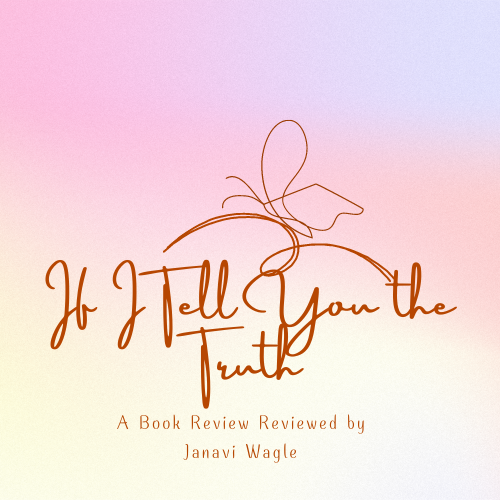In our lives, we go through several conflicts and life is not always fair . The stories are told from different points of views and the perspectives also vary depending upon the circumstances. In the book, If I Tell you the Truth by Jasmin Kaur, the author uses an innovative method to tell a story. She uses the craft of verse and imagery to support the theme that “In every conflict, there are different points of view than the first point of view you hear”.
As a typical South-Asian teenager living in Milwaukee, I always look forward to books with relatable South Asian characters , and this book meets my expectations as a middle grade reader. This book has absolutely swept me off my feet as Miss Kaur writes a story that no south asian background book has ever talked about. When I saw the beautiful cover of the book in Brookfield Public Library I couldn’t stop myself from picking it up.
Before I go into this book, I would like to give a warning to all readers reading this review. You must be 14 years old or older to read this book as this book has trigger warnings such as police brutality, sexual assault, domestic violence, alcohol abuse, depression, anxiety and inappropriate language. Read this book at your discretion.
The story starts off in the setting of August 2001, and the protagonist, a naive Kiran Kaur in Punjab has already planned her life. Kiran’s future plan includes getting engaged to a man from a good family, studying abroad for a few years in Toronto, and then living a happy married life. However, everything in Kiran’s life backflips after her fiancee, Prabh’s older brother, Hari Ahluwalia rapes her, leaving her pregnant before she goes off to Canada. Kiran is in shock but decides to keep the baby irrespective of the hardship, with the hope that her secret baby will live a happy life in Canada. Kiran’s and Prabh’s family refuse to accept Kiran’s truth about the pregnancy. They blame her for getting pregnant and “lying” about the sexual assault . When she goes to Canada, she makes the decision to break all ties with her family and start her new life in Canada. During her struggles she befriends a Punjabi-Canadian girl at her college, Joti who acts more like a sister towards her than a friend. After Kiran has her baby, whom she names Sahaara as it means a pillar, or refuge and a source of support. Throughout the book you will see how Kiran puts so much effort into Sahaara’s life so she can live happily and get the chances Kiran never got. Since Kiran was on a student visa, she would have to leave Canada once her visa expired . But she couldn’t do that. She couldn’t again get shamed by her family and have her daughter suffer for the rest of her life. Kiran’s family in India has abandoned her. Given her immigration status,Kiran decides to hide herself from getting deported. As Sahaara gets older, she puts forth dedication towards everything she loves. Her hard working single mother, her best friend Jeevan and aunt Joti are her entire life. However, an incident occurs, when Sahaara learns about her mothers dark past, how she risked her life so Sahaara wouldn’t have to cry herself to sleep every night. When Kiran’s rapist decides to run as chief minister back in India years later , Sahaara knows that her mother needs to tell her point of view of the story. But doing that will take a lot of guts, and courage to stand up. This was indeed a dangerous step. Will Kiran stand up against the wrongs that ruined her life? What will happen next? Read to find out.
In this story, the author covers the topics of family love, support, friendship, teamwork, immigration and trauma of sexual assault to support the theme. This book made me laugh,and feel angry at times. This book didn’t disappoint me and actually taught me about the point of views of sexual assault victims If you’re a determined and enthusiastic teen like me who wants to read diverse perspectives, I can guarantee, this book will rest in your hands for a long time.
